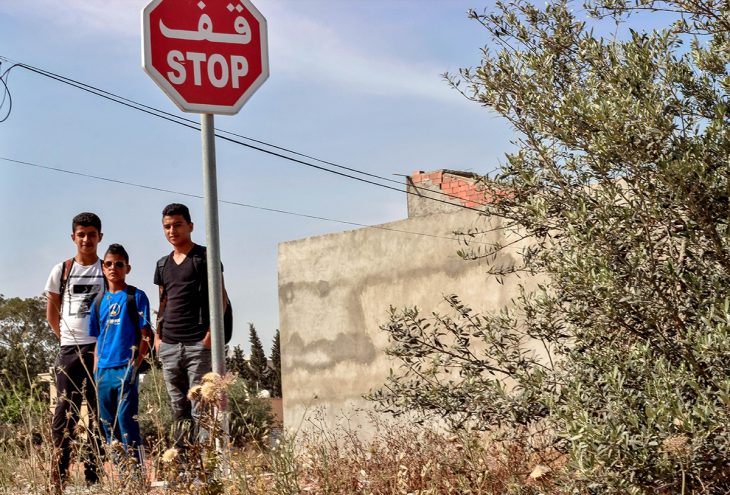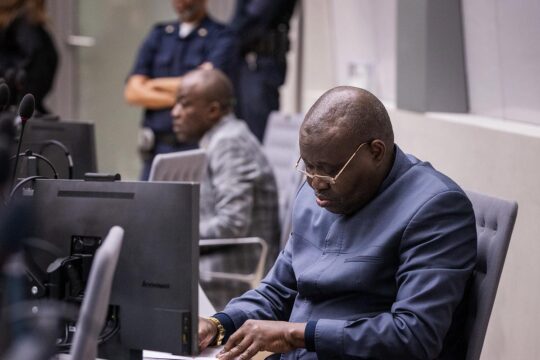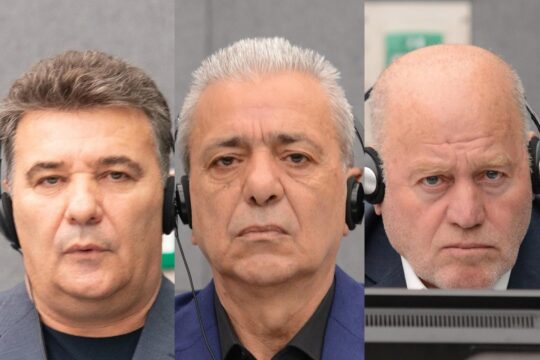Once again the Central African Republic (CAR) dominated transitional justice news this week. The UN published a damning report on human rights violations in the country, while the Prosecutor of the CAR’s Special Criminal Court, a Congolese military jurist, made his first visit to Bangui to prepare his task.
According to the UN report, Colonel Toussaint Muntazini Mukimapa’s task is huge. The UN report documents 620 of grave human rights violations committed in the CAR between 2003 and 2015. They include sexual violence, acts of torture in detention centres, extrajudicial executions, violence of an ethnic or religious nature, recruitment of child soldiers, attacks on aid workers and UN peacekeepers.
The UN report concludes that a big majority of these documented cases constitute serious violations of international human rights and humanitarian law and could constitute war crimes and/or crimes against humanity, thus falling under the jurisdiction of international courts such as the International Criminal Court (ICC) and the Special Criminal Court (SCC), which has a mandate to try crimes in Bangui, close to the victims. Given the large number of such crimes committed, the UN recommends that the SCC target its prosecutions carefully. Adopting this strategy is necessary because of “the high number and specific nature of the crimes committed since January 1, 2003, which require careful selection of events, cases and specific crimes that are to be the subject of prosecutions”, says the report. Putting a public strategy in place will also help the Prosecutor manage expected pressure from political, ethnic and religious groups, it says.
Crimes committed against women, children or other especially vulnerable groups should be given special priority in this strategy, as well as crimes based on religious belonging, according to the report’s recommendations.
The SCC Prosecutor says he is aware of what is at stake. “I believe there is a strong will among the Central African people not to forgive the serious crimes that have been committed,” said the Congolese magistrate, quoted by Radio Ndeke Luka. “This will was expressed during the National Forum (held in Bangui in May2015)” he continued. “It was expressed through promulgation of the law setting up the SCC.”
Colonel Toussaint Muntazini Mukimapa also admitted that he would be starting his work in a particularly difficult security context. A recent eruption of violence left dozens of dead, including several UN peacekeepers, who were deliberately targeted. “The security challenges could compromise our investigations,” he told Radio Ndeke Luka. “But we are ready to face up to them.” He said his office had strategies to investigate “the warlords who continue to commit unforgivable crimes”, but did not give further details.
It is to be feared, nevertheless, that his commitment could come up against the harsh reality on the ground in a country without a viable army or police force. Experts and human rights groups criticize the ambiguities and compromises of a government closely linked to the “warlords” and the profits that it keep it in power.
On the other side of the continent, Tunisia is trying valiantly to maintain its commitment to transitional justice, with the mobilization even of its artists and photographers.
“To raise awareness among young Tunisians on issues of marginalization, the International Center for Transitional Justice (ICTJ) and the British Council have launched a photography project aimed at 15-25 year olds,” writes our Tunis correspondent Olfa Belhassine. “The result is an exhibition of images which are both poignant and attractive, entitled ‘Marginalisation: images of an invisible repression’.”
The young photographers have received theoretical training in art and photo techniques, as well as on the basic principles of transitional justice and the concept of “marginalization”.
This exhibition is planned to tour the country in several cultural centres and universities. It is also intended to trigger debates with young people around issues of exclusion, social injustice, transitional justice and perpetuating the history of dissidence in Tunisia.







